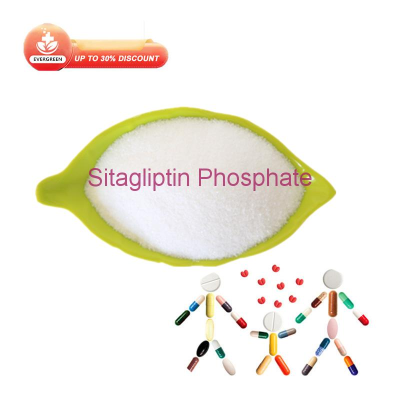-
Categories
-
Pharmaceutical Intermediates
-
Active Pharmaceutical Ingredients
-
Food Additives
- Industrial Coatings
- Agrochemicals
- Dyes and Pigments
- Surfactant
- Flavors and Fragrances
- Chemical Reagents
- Catalyst and Auxiliary
- Natural Products
- Inorganic Chemistry
-
Organic Chemistry
-
Biochemical Engineering
- Analytical Chemistry
- Cosmetic Ingredient
-
Pharmaceutical Intermediates
Promotion
ECHEMI Mall
Wholesale
Weekly Price
Exhibition
News
-
Trade Service
▎WuXi AppTec Content Team Editor Subclinical hypothyroidism (hypothyroidism) is one of the common clinical endocrine diseases, which is mainly characterized by a significant increase in serum thyrotropin levels (usually ≥4.
5 mIU/L), while free thyroid Normal levels
.
Hypothyroidism is more common in the elderly, and its main hazards are the development of clinical hypothyroidism and increased blood lipids, leading to atherosclerosis and coronary heart disease
.
Current international guidelines have different recommendations for the treatment of hypothyroidism in the elderly
.
Recently, "The Lancet Diabetes & Endocrinology" (The Lancet Diabetes & Endocrinology) published a review, a comprehensive summary of the past ten years of clinical research on patients with hypothyroidism over the age of 65 years of important data
.
The results of the analysis showed that the incidence of cardiovascular, musculoskeletal, and cognitive-related adverse prognostic events was not significantly increased in elderly patients with serum thyrotropin levels of 4.
5-7.
0 mIU/L compared with euthyroid controls
.
In addition, studies have shown that when the thyrotropin level is less than 7.
0 mIU/L (about 75% in clinical practice), elderly patients may not need to start levothyroxine treatment immediately, and the dose of levothyroxine should also be based on the patient's age, combined with Individualized consideration of symptoms,
etc.
Screenshot source: The Lancet Diabetes & Endocrinology The pathogenesis of hypothyroidism is complex and usually caused by structural abnormalities of the thyroid itself or other organs
.
Serum thyrotropin level is a key indicator for the diagnosis of hypothyroidism.
Clinically, about 75% of patients with hypothyroidism have thyrotropin levels of 4.
5-6.
9 mIU/L, 20% of patients with 7.
0-9.
9 mIU/L, and 5% of patients with thyrotropin levels.
of patients with 10 mIU/L and above
.
Levothyroxine is one of the most important drugs for the treatment of hypothyroidism
.
It should be noted that there is currently no uniform standard for the treatment of hypothyroidism in different guidelines
.
In addition, some elevated thyrotropin levels can also return to normal without intervention; healthy elderly thyrotropin levels can also spontaneously increase under normal conditions
.
Therefore, clinically elderly patients are likely to be overtreated with levothyroxine
.
Based on authoritative published data (including meta-analyses, randomized clinical trials, and cohort studies) over the past 10 years (January 1, 2010 to July 31, 2021), the researchers compared the elderly patients with hypothyroidism with different thyrotropin levels.
(65 years and older) to assess the degree of benefit and safety of drug therapy
.
The results of the analysis showed that the symptoms of thyroxine deficiency in most elderly patients with hypothyroidism were usually not obvious, and after levothyroxine treatment, the symptoms of hypothyroidism and cardiovascular/skeletal indicators in elderly patients with hypothyroidism did not improve
.
Thyrotropin level: 4.
5-6.
9 mIU/L In elderly patients (65 years and older) with a thyrotropin level of 4.
5-6.
9 mIU/L, their thyrotropin level is associated with mood/cognitive changes, frailty, and bone loss/fractures occurrence is not related
.
The risk of cardiovascular, musculoskeletal, and cognitive-related adverse events did not significantly improve in these patients after levothyroxine treatment
.
Results from observational studies and randomized controlled trials only support effective monitoring of this subset of patients rather than immediate initiation of treatment
.
Thyrotropin level: 7.
0-9.
9 mIU/L For elderly patients with thyrotropin level of 7.
0-9.
9 mIU/L: 65-84 years old, the relationship between hypothyroidism status and cardiovascular events (coronary heart disease, stroke) related to increased risk, these patients can be considered for drug treatment, but overtreatment should be avoided; for elderly patients ≥ 80 years old, under the same level of thyrotropin status, there is no significant association between their hypothyroidism status and poor prognosis In clinical practice, the "Wait-and-see" strategy can be carefully selected; in addition, some studies suggest that hypothyroidism can even bring certain survival benefits to elderly patients aged 85 years and above
.
Thyrotropin level: 10.
0-19.
9 mIU/L For elderly patients (65 years and older) with thyrotropin level of 10.
0-19.
9 mIU/L, hypothyroidism status is also associated with cardiovascular events (heart failure, coronary It is related to the increased risk of heart disease), and drug treatment can be considered, but continuous evaluation based on patient follow-up results is required to avoid overtreatment
.
▲The treatment recommendation for elderly patients based on different thyrotropin levels (Image source: Reference [1]) The main goal of hypothyroidism treatment is to prevent hypothyroidism from progressing to clinical hypothyroidism, and to relieve symptoms related to hypothyroidism or prevent related adverse effects occurrence of the event
.
The current paper confirms that elderly patients with hypothyroidism may be overdiagnosed and overtreated, and that drug interactions and increased risk of adverse drug treatment events may result in higher health care expenditures
.
The researchers believe that levothyroxine therapy should be considered in elderly patients 65 years and older if thyrotropin levels are persistently higher than 7 mIU/L, and immediate treatment may not be considered if it is below 7 mIU/L
.
Elderly patients are most vulnerable to overtreatment, so levothyroxine therapy should be more individualized for elderly patients with hypothyroidism
.
Related reading "The Lancet" Chinese 10,000 people study: middle-aged and elderly people should pay attention to muscle loss! The risk of heart disease and stroke will increase significantly The latest version of the "Chinese Expert Consensus" on the management of blood lipids in the elderly is here, and "statin + fish oil" has been recommended as a breakthrough in geriatric oncology medicine! "The Lancet": This assessment can reduce serious toxic and side effects by 20%! What to do if the elderly are prone to falls and fractures? BMJ: Eat more dairy products, similar to the preventive effect of drugs NEJM Fuwai-led research: Chinese elderly hypertensive patients, systolic blood pressure <130 is better for cardiovascular! Title map source: 123RF reference [1] Biondi, Bernadette, and Anne R.
Cappola.
"Subclinical hypothyroidism in older individuals.
" The Lancet Diabetes & Endocrinology (2021).
Disclaimer: WuXi AppTec content team focuses on introducing global biopharmaceuticals Advances in Health Research
.
This article is for information exchange purposes only, and the views expressed in this article do not represent WuXi AppTec's position, nor do they represent WuXi AppTec's support or opposition to the views expressed in this article
.
This article is also not a treatment plan recommendation
.
For guidance on treatment options, please visit a regular hospital
.
5 mIU/L), while free thyroid Normal levels
.
Hypothyroidism is more common in the elderly, and its main hazards are the development of clinical hypothyroidism and increased blood lipids, leading to atherosclerosis and coronary heart disease
.
Current international guidelines have different recommendations for the treatment of hypothyroidism in the elderly
.
Recently, "The Lancet Diabetes & Endocrinology" (The Lancet Diabetes & Endocrinology) published a review, a comprehensive summary of the past ten years of clinical research on patients with hypothyroidism over the age of 65 years of important data
.
The results of the analysis showed that the incidence of cardiovascular, musculoskeletal, and cognitive-related adverse prognostic events was not significantly increased in elderly patients with serum thyrotropin levels of 4.
5-7.
0 mIU/L compared with euthyroid controls
.
In addition, studies have shown that when the thyrotropin level is less than 7.
0 mIU/L (about 75% in clinical practice), elderly patients may not need to start levothyroxine treatment immediately, and the dose of levothyroxine should also be based on the patient's age, combined with Individualized consideration of symptoms,
etc.
Screenshot source: The Lancet Diabetes & Endocrinology The pathogenesis of hypothyroidism is complex and usually caused by structural abnormalities of the thyroid itself or other organs
.
Serum thyrotropin level is a key indicator for the diagnosis of hypothyroidism.
Clinically, about 75% of patients with hypothyroidism have thyrotropin levels of 4.
5-6.
9 mIU/L, 20% of patients with 7.
0-9.
9 mIU/L, and 5% of patients with thyrotropin levels.
of patients with 10 mIU/L and above
.
Levothyroxine is one of the most important drugs for the treatment of hypothyroidism
.
It should be noted that there is currently no uniform standard for the treatment of hypothyroidism in different guidelines
.
In addition, some elevated thyrotropin levels can also return to normal without intervention; healthy elderly thyrotropin levels can also spontaneously increase under normal conditions
.
Therefore, clinically elderly patients are likely to be overtreated with levothyroxine
.
Based on authoritative published data (including meta-analyses, randomized clinical trials, and cohort studies) over the past 10 years (January 1, 2010 to July 31, 2021), the researchers compared the elderly patients with hypothyroidism with different thyrotropin levels.
(65 years and older) to assess the degree of benefit and safety of drug therapy
.
The results of the analysis showed that the symptoms of thyroxine deficiency in most elderly patients with hypothyroidism were usually not obvious, and after levothyroxine treatment, the symptoms of hypothyroidism and cardiovascular/skeletal indicators in elderly patients with hypothyroidism did not improve
.
Thyrotropin level: 4.
5-6.
9 mIU/L In elderly patients (65 years and older) with a thyrotropin level of 4.
5-6.
9 mIU/L, their thyrotropin level is associated with mood/cognitive changes, frailty, and bone loss/fractures occurrence is not related
.
The risk of cardiovascular, musculoskeletal, and cognitive-related adverse events did not significantly improve in these patients after levothyroxine treatment
.
Results from observational studies and randomized controlled trials only support effective monitoring of this subset of patients rather than immediate initiation of treatment
.
Thyrotropin level: 7.
0-9.
9 mIU/L For elderly patients with thyrotropin level of 7.
0-9.
9 mIU/L: 65-84 years old, the relationship between hypothyroidism status and cardiovascular events (coronary heart disease, stroke) related to increased risk, these patients can be considered for drug treatment, but overtreatment should be avoided; for elderly patients ≥ 80 years old, under the same level of thyrotropin status, there is no significant association between their hypothyroidism status and poor prognosis In clinical practice, the "Wait-and-see" strategy can be carefully selected; in addition, some studies suggest that hypothyroidism can even bring certain survival benefits to elderly patients aged 85 years and above
.
Thyrotropin level: 10.
0-19.
9 mIU/L For elderly patients (65 years and older) with thyrotropin level of 10.
0-19.
9 mIU/L, hypothyroidism status is also associated with cardiovascular events (heart failure, coronary It is related to the increased risk of heart disease), and drug treatment can be considered, but continuous evaluation based on patient follow-up results is required to avoid overtreatment
.
▲The treatment recommendation for elderly patients based on different thyrotropin levels (Image source: Reference [1]) The main goal of hypothyroidism treatment is to prevent hypothyroidism from progressing to clinical hypothyroidism, and to relieve symptoms related to hypothyroidism or prevent related adverse effects occurrence of the event
.
The current paper confirms that elderly patients with hypothyroidism may be overdiagnosed and overtreated, and that drug interactions and increased risk of adverse drug treatment events may result in higher health care expenditures
.
The researchers believe that levothyroxine therapy should be considered in elderly patients 65 years and older if thyrotropin levels are persistently higher than 7 mIU/L, and immediate treatment may not be considered if it is below 7 mIU/L
.
Elderly patients are most vulnerable to overtreatment, so levothyroxine therapy should be more individualized for elderly patients with hypothyroidism
.
Related reading "The Lancet" Chinese 10,000 people study: middle-aged and elderly people should pay attention to muscle loss! The risk of heart disease and stroke will increase significantly The latest version of the "Chinese Expert Consensus" on the management of blood lipids in the elderly is here, and "statin + fish oil" has been recommended as a breakthrough in geriatric oncology medicine! "The Lancet": This assessment can reduce serious toxic and side effects by 20%! What to do if the elderly are prone to falls and fractures? BMJ: Eat more dairy products, similar to the preventive effect of drugs NEJM Fuwai-led research: Chinese elderly hypertensive patients, systolic blood pressure <130 is better for cardiovascular! Title map source: 123RF reference [1] Biondi, Bernadette, and Anne R.
Cappola.
"Subclinical hypothyroidism in older individuals.
" The Lancet Diabetes & Endocrinology (2021).
Disclaimer: WuXi AppTec content team focuses on introducing global biopharmaceuticals Advances in Health Research
.
This article is for information exchange purposes only, and the views expressed in this article do not represent WuXi AppTec's position, nor do they represent WuXi AppTec's support or opposition to the views expressed in this article
.
This article is also not a treatment plan recommendation
.
For guidance on treatment options, please visit a regular hospital
.







